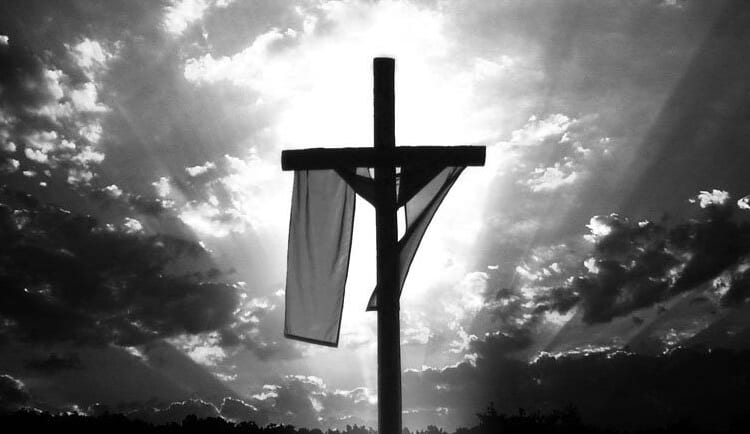The Sea of Faith
Was once, too, at the full, and round earth’s shore
Lay like the folds of a bright girdle furled.
But now I only hear
Its melancholy, long, withdrawing roar,
Retreating, to the breath
Of the night-wind, down the vast edges drear
And naked shingles of the world.
Ah, love, let us be true
To one another! for the world, which seems
To lie before us like a land of dreams,
So various, so beautiful, so new,
Hath really neither joy, nor love, nor light,
Nor certitude, nor peace, nor help for pain;
And we are here as on a darkling plain
Swept with confused alarms of struggle and flight,
Where ignorant armies clash by night.
Matthew Arnold – Dover Beach
ARNOLD’S words have never seemed more prescient. However, in these dark times there is some good news – potentially very good news – for a change. As hard as it may be to believe, Christianity is again in the intellectual ascendant. Although until very recently the picture was one of seemingly remorseless decline, there are now significant reasons for optimism.
Firstly, there is the complete failure of liberalism and atheism to create the moral, rational, happy society it promised. Having junked religion, people substituted politics as a form of faith. This created a weird syncretic new religion that combined the madness of woke, scientific materialism and pagan worship of the Earth: human beings were to be denied agency using sinister behavioural techniques and required to sacrifice all their creature comforts on the altar of Gaia and her single commandment: Net Zero. This new ‘faith’ brought all the worst aspects of religion with seemingly none of the benefits: irrationality, refutation of empirical evidence, cruelty born of puritan zealotry, hounding of apostates and heretics but coupled with nihilism and – tellingly – no redemption. Western society without its Judaeo-Christian heritage has proved to be like a cut rose: still beautiful – for a brief interlude – but ultimately doomed to wither and die.
Atheism’s failure has been marked by some major defections and subsequent conversion to Christianity by leading intellectuals and thinkers. The most famous of these is Ayaan Hirsi Ali. Other leading thinkers such as Dr Jordan Peterson seem to be heading in a Christian direction. The recent Alliance for Responsible Citizenship conference, the brainchild of Dr Peterson, was organised by evangelical Philippa Stroud and although not explicitly Christian was heavily influenced by the religion.
Alongside this intellectual revolution is a scientific one. Astonishingly, advancements in biology are starting to point to the existence of intelligent design rather random mutation to explain the great leaps in life forms that punctuate the fossil record. Evolution certainly works for small-scale changes, but the complexity of life is proving to be so vast that random chance couldn’t possibly explain it, even on a universe-wide scale of space and time. Instead, it points to biological structures such as DNA being coded – and coding requires an intelligence. In short, theism is back. It should be noted that this is still very much a minority view amongst scientists and, of course, these scientific revelations don’t prove the existence of an explicitly Christian God. However, it seems that faith may be seen once again as an ally of reason rather than its antagonist – an event of potentially enormous long-term significance.
So, can Christianity once again become the dominant faith in British society, and can it one day supplant liberalism as the high-status faith amongst the elite’s classes and intelligentsia? After all, if as Andrew Breitbart once stated, culture is upstream from politics, then religion is arguably upstream from culture, and British culture and politics is unarguably in a dreadful place.
I think we can all agree that it is highly unlikely for the Church of England’s present leadership to prove anywhere near adequate for the challenge. Therefore, ultimately it will up to us, dear reader, to return to the churches and get involved at the grassroots – but perhaps to labour patiently and not to expect instant results. Although there are signs of growth here and there, no doubt there is a bit more of the ‘long, withdrawing roar’ to come before the tide of faith starting to return amongst the great majority. It may our fate, armed nonetheless with these new ideas and new hope, to fight that most difficult of battles – a rearguard action with our backs absolutely against the wall: to keep open, against all the odds, our beleaguered churches as places of Christian worship even as the congregations continue – for a time – to dwindle; to demand democratic reforms so that we can reject the insipid and the woke from that Ship of Fools, the House of Bishops, and appoint better replacements; to evangelise and sow the seed of faith on seemingly stony ground, in the hope of a revival we ourselves may only see the start of.
In that spirit, I strongly recommend the following podcasts on Christianity’s intellectual revival as listening material over the Easter holiday. Have faith and move forward with hope, knowing that as we celebrate Easter that Christ’s Church, like Christ Himself, can be resurrected from the tomb.
1. Return of the God Hypothesis
This is an exceptionally interesting discussion between outstanding intellectuals and scientists on how the understanding of the complexity of life means some eminent scholars are suggesting is evidence for intelligent design. Evolution works for small changes, but not for big ones.
2. Rock of Ages and the Ages of Rocks
3. John Anderson talks to the eminent Australian evangelist Glen Scrivener on how atheists swim in Christian waters.
4. Ayaan Hirsi Ali, one of the world’s best-known atheists, has recently converted to Christianity.
5. A Comeback for God? Irreverend discuss whether the long intellectual retreat of Christianity has just started to go into reverse.

